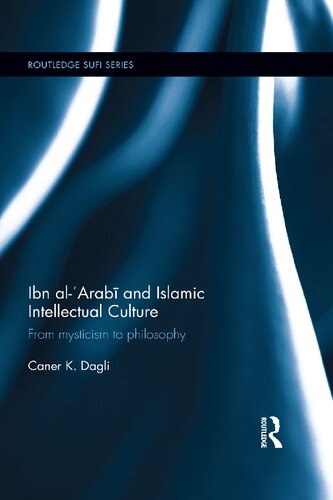

Most ebook files are in PDF format, so you can easily read them using various software such as Foxit Reader or directly on the Google Chrome browser.
Some ebook files are released by publishers in other formats such as .awz, .mobi, .epub, .fb2, etc. You may need to install specific software to read these formats on mobile/PC, such as Calibre.
Please read the tutorial at this link. https://ebooknice.com/page/post?id=faq
We offer FREE conversion to the popular formats you request; however, this may take some time. Therefore, right after payment, please email us, and we will try to provide the service as quickly as possible.
For some exceptional file formats or broken links (if any), please refrain from opening any disputes. Instead, email us first, and we will try to assist within a maximum of 6 hours.
EbookNice Team

Status:
Available5.0
22 reviewsIbn al-'Arabī (d. 1240) was one of the towering figures of Islamic intellectual history, and among Sufis still bears the title of al-shaykh al-akbar, or "the greatest master."
Ibn al-'Arabī and Islamic Intellectual Culture traces the history of the concept of "oneness of being" (wahdat al-wujūd) in the school of Ibn al- 'Arabī, in order to explore the relationship between mysticism and philosophy in Islamic intellectual life. It examines how the conceptual language used by early mystical writers became increasingly engaged over time with the broader Islamic intellectual culture, eventually becoming integrated with the latter’s common philosophical and theological vocabulary. It focuses on four successive generations of thinkers (Sadr al-Dīn al-Qūnawī, Mu'ayyad al-Dīn al-Jandī, 'Abd al-Razzāq al-Kāshānī, and Dāwūd al-Qaysarī), and examines how these "philosopher-mystics" refined and developed the ideas of Ibn al-'Arabī. Through a close analysis of texts, the book clearly traces the crystallization of an influential school of thought in Islamic history and its place in the broader intellectual culture.
Offering an exploration of the development of Sufi expression and thought, this book will be a valuable resource for students and scholars of Islamic thought, philosophy, and mysticism.